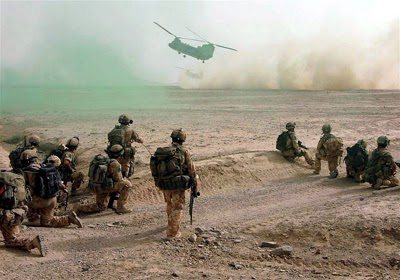The decision by US President Barack Obama to bring home 33,000 troops from Afghanistan by next year risks a rush to pull out among NATO allies after a grinding decade-old war, analysts say.
With Europeans focused on containing a debt crisis at home and already feeling the strains of the air war in Libya, experts say Obama will have to move gingerly out of Afghanistan to prevent a race to the exit.
“If we signal that we are just getting out, then it does risk a stampede for the exits,” Brian Jenkins, an analyst at Rand Corporation and former US Green Beret special forces soldier, told AFP.
“That’s one of the reasons why the withdrawal will be a very cautious and conservative one,” he said.
Germany and France promptly announced they would look at scaling down their own presence following Obama’s decision to withdraw some 10,000 the 99,000 US troops this year and another 23,000 next year.
“The prospects of a withdrawal are firming up now,” said German Foreign Minister Guido Westerwelle, whose country has the third largest contingent with some 5,000 soldiers in a war deeply unpopular in Germany.
“Our goal is also, at the end of this year, to be able to reduce the German contingent for the first time,” Westerwelle said.
French President Nicolas Sarkozy’s office said Paris would carry out a progressive pullback of France’s 4,000 forces with a timetable similar to the one announced by Obama.
British Prime Minister David Cameron plans to remove all combat troops by 2015, starting with 450 soldiers by the end of 2011. Britain has the second largest contingent with 9,500 troops.
NATO Secretary General Anders Fogh Rasmussen said Obama’s decision was made following close consultations with alliance members and was “a natural result” of progress made in Afghanistan.
The alliance will progressively move from combat to a support role as part of its strategy to hand Afghan forces sole responsibility for their security by 2014, Rasmussen said.
“We can see the tide is turning. The Taliban are under pressure,” he said.
A NATO diplomat said, however, that some allies “fear negative consequences for their own areas of responsibility in Afghanistan” following the US withdrawal, which Obama said would start in July.
Other nations “might be encouraged to deepen their own withdrawals,” the diplomat said on condition of anonymity.
Outgoing US Defence Secretary Robert Gates warned at a meeting with NATO counterparts earlier this month that the gains made in Afghanistan “could be threatened” if the transition is not conducted in a coordinated way.
“Even as the United States begins to draw down next month, I assured my fellow ministers that there will be no rush to the exits on our part — and we expect the same from our allies,” Gates said.
But European governments could come under pressure from voters to speed up their withdrawals if more troops die in a war that has dragged on for nearly 10 years, analysts said.
“The level of casualties will be critical,” said Nick Witney, defence expert at the European Foreign Policy Centre.
“Now that we are heading for the exit, western European publics will be increasingly reluctant to accept further losses, and likely to respond to further deaths by concluding ‘that’s it, we’ve done enough’,” he said.
With a raging debt crisis forcing governments such as Britain, Spain and Italy to tighten their belts, Europeans may also struggle to justify funding a war with no end in sight.
“It’s actually a pretty significant burden for a number of these countries to stay deployed on the other side of the world for that long,” said Jeffrey Lightfoot of the Atlantic Council think tank.
“It is exhausting for the actual troops themselves, but it’s also exhausting for budgets,” he said.










